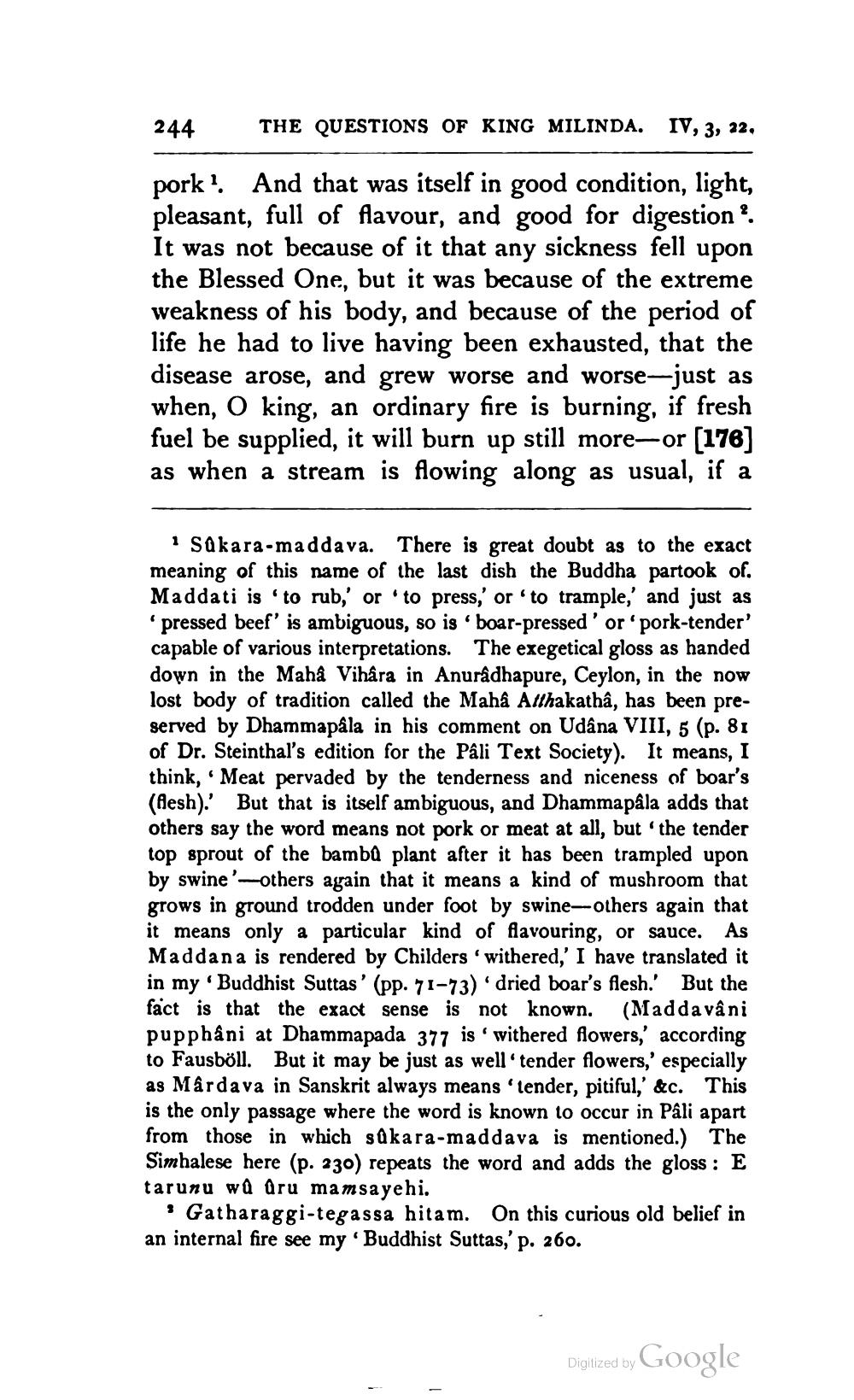________________
244
THE QUESTIONS OF KING MILINDA.
IV, 3, 22.
pork'. And that was itself in good condition, light, pleasant, full of flavour, and good for digestion 2. It was not because of it that any sickness fell upon the Blessed One, but it was because of the extreme weakness of his body, and because of the period of life he had to live having been exhausted, that the disease arose, and grew worse and worse-just as when, O king, an ordinary fire is burning, if fresh fuel be supplied, it will burn up still more—or [176] as when a stream is flowing along as usual, if a
1 Sakara-maddava. There is great doubt as to the exact meaning of this name of the last dish the Buddha partook of. Maddati is to rub,' or 'to press,' or 'to trample,' and just as 'pressed beef' is ambiguous, so is 'boar-pressed' or 'pork-tender' capable of various interpretations. The exegetical gloss as handed down in the Maha Vihâra in Anuradhapure, Ceylon, in the now lost body of tradition called the Mahâ Atthakathâ, has been preserved by Dhammapâla in his comment on Udâna VIII, 5 (p. 81 of Dr. Steinthal's edition for the Pâli Text Society). It means, I think, Meat pervaded by the tenderness and niceness of boar's (flesh).' But that is itself ambiguous, and Dhammapâla adds that others say the word means not pork or meat at all, but 'the tender top sprout of the bambû plant after it has been trampled upon by swine'-others again that it means a kind of mushroom that grows in ground trodden under foot by swine-others again that it means only a particular kind of flavouring, or sauce. As Maddana is rendered by Childers 'withered,' I have translated it in my 'Buddhist Suttas' (pp. 71-73) ' dried boar's flesh.' But the fact is that the exact sense is not known. (Maddavâni pupphâni at Dhammapada 377 is' withered flowers,' according to Fausböll. But it may be just as well 'tender flowers,' especially as Mârdava in Sanskrit always means 'tender, pitiful,' &c. This is the only passage where the word is known to occur in Pâli apart from those in which sûkara-maddava is mentioned.) The Simhalese here (p. 230) repeats the word and adds the gloss: E tarunu wû ûru mamsayehi.
'Gatharaggi-tegassa hitam. On this curious old belief in an internal fire see my 'Buddhist Suttas,' p. 260.
Digitized by Google




